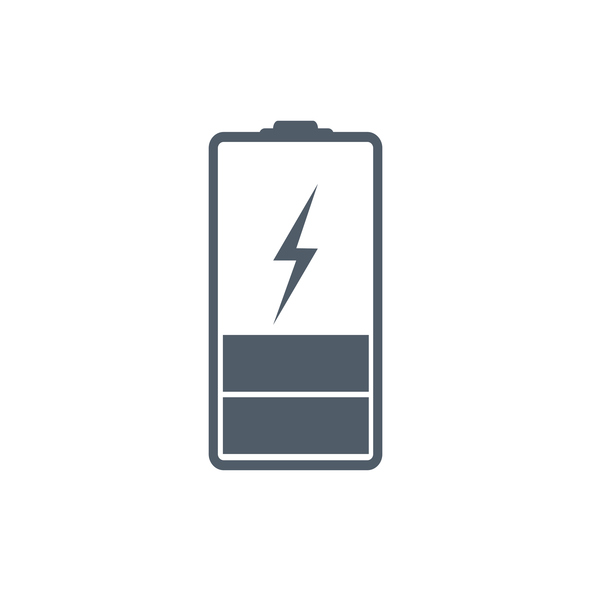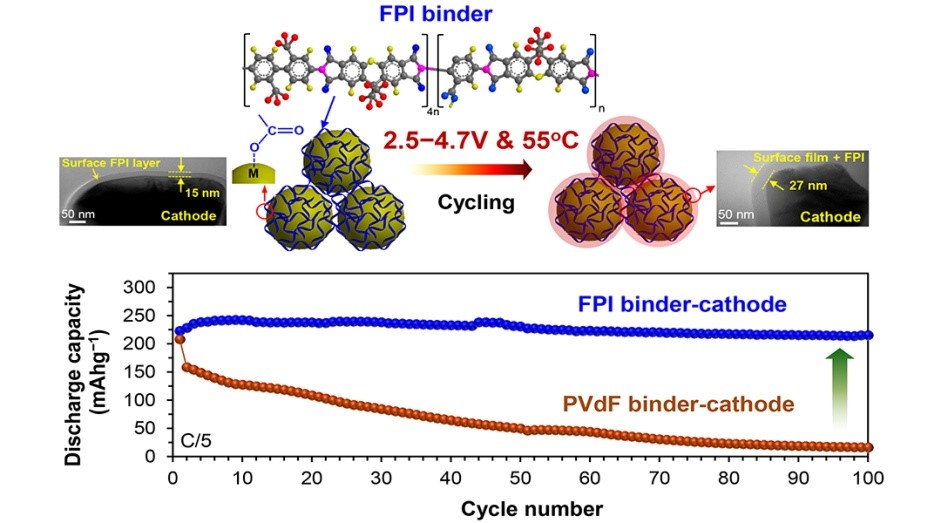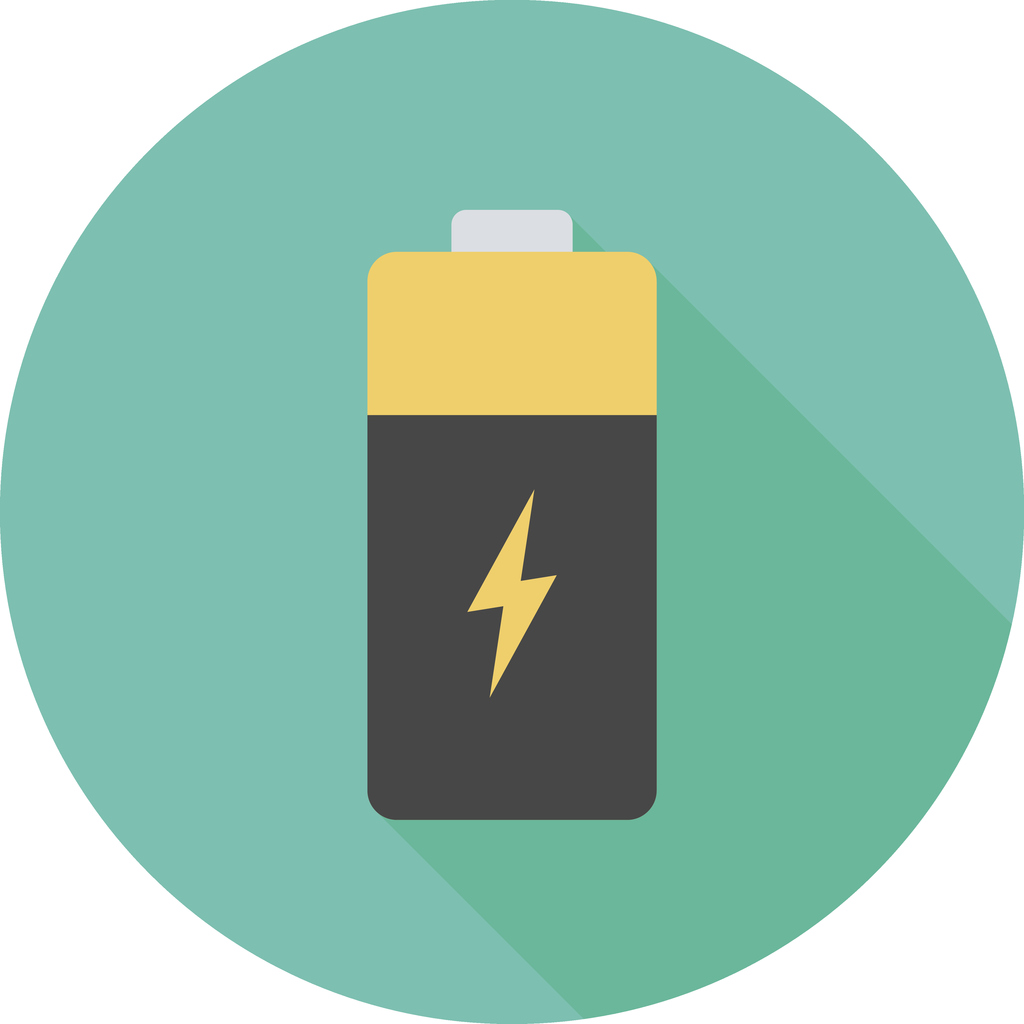 Long-time ECS member, editor of the Journal of The Electrochemical Society, and Distinguished University Professor at Case Western Reserve Robert Savinell has a new title to add to his list. Savinell will lead the U.S. Department of Energy’s new Energy Frontier Research Center at Case Western Reserve University, in support of a research endeavor that focuses on identifying new battery chemistries with the potential to provide large, long-lasting energy storage solutions for buildings or the power grid. The project is made possible by an EFRC grant, which awarded $10.75 million to Case Western Reserve University, allowing the school to establish a research center to explore Breakthrough Electrolytes for Energy Storage.
Long-time ECS member, editor of the Journal of The Electrochemical Society, and Distinguished University Professor at Case Western Reserve Robert Savinell has a new title to add to his list. Savinell will lead the U.S. Department of Energy’s new Energy Frontier Research Center at Case Western Reserve University, in support of a research endeavor that focuses on identifying new battery chemistries with the potential to provide large, long-lasting energy storage solutions for buildings or the power grid. The project is made possible by an EFRC grant, which awarded $10.75 million to Case Western Reserve University, allowing the school to establish a research center to explore Breakthrough Electrolytes for Energy Storage.
 Lithium-ion batteries play a major role in our everyday lives; they’re in our cell phones, solar panels, tablets, cars, and medical devices, to name a few. All these modern technologies are made possible because of batteries. Yet, they’re far from perfect. The Samsung Note 7 self-combusted on nightstands and planes in 2016, injuring customers and causing second-degree burns in one Florida man. Not to mention, the hoverboard’s explosion around the same time, causing a recall of roughly 16,000 hoverboards.
Lithium-ion batteries play a major role in our everyday lives; they’re in our cell phones, solar panels, tablets, cars, and medical devices, to name a few. All these modern technologies are made possible because of batteries. Yet, they’re far from perfect. The Samsung Note 7 self-combusted on nightstands and planes in 2016, injuring customers and causing second-degree burns in one Florida man. Not to mention, the hoverboard’s explosion around the same time, causing a recall of roughly 16,000 hoverboards.
 Electric vehicles don’t only move people, they move companies too. And Volkswagen is making big moves when it comes to investing in battery-powered vehicles.
Electric vehicles don’t only move people, they move companies too. And Volkswagen is making big moves when it comes to investing in battery-powered vehicles.
According to an article in AXIOS written by Eric Wachsman, director of the Maryland Energy Innovation Institute at the University of Maryland, founder of Ion Storage Systems, and 3rd vice president of the ECS board of directors, in June alone, Volkswagen invested $100 million in QuantumScape, a solid state battery startup. And now, the car company is considering building a factory in Europe to produce solid state batteries, a next-generation battery technology, to power their electric vehicles. Volkswagen isn’t alone. Solid-electrolyte batteries are getting international attention from companies like Toyota, Nissan, Dyson, and BMW, who’ve all made similar investments. (more…)
 In 1888, German inventor Andreas Flocken created what is widely considered the world’s first electric car. According to The Battery Issue, recently published by The Verge, the 900-pound vehicle drove at the top speed of nine miles per hour, coming to a halt after a two and a half hour test ride. Although it was considered a success, it wasn’t entirely. The car’s battery, sustainably charged with water power, had died.
In 1888, German inventor Andreas Flocken created what is widely considered the world’s first electric car. According to The Battery Issue, recently published by The Verge, the 900-pound vehicle drove at the top speed of nine miles per hour, coming to a halt after a two and a half hour test ride. Although it was considered a success, it wasn’t entirely. The car’s battery, sustainably charged with water power, had died.
Today, nearly 130 years, German carmakers are still having trouble with their batteries – specifically with battery cells. As a result, car companies are relying on suppliers from China, Korea, and Japan for the highly needed component.
“Cells can be a major technology differentiator and cells are the by far most costly part of the battery pack,” says Martin Winter, a professor of materials science, energy, and electrochemistry at the University of Münster and ECS Battery Division and Europe Section member. Winter says a large scale production of battery cells by European or German companies will be crucial in order to take part in the “enormous and rapidly growing market.”
Hydro-Québec (an ECS institutional member) and the U.S. Army Research Laboratory have announced a breakthrough in the lithium-ion battery materials field, publishing their research results in the Journal of Power Sources. Using a cathode made with new high voltage safe materials, the researchers have achieved a world first: building a 1.2 Ah lithium-ion cell with a voltage of 5 V.
“With the high voltage of this new cell, we can reach a very high energy density,” says Karim Zaghib, General Director of the Center of Excellence in Transportation Electrification and Energy Storage. “This highly desirable property can improve batteries used in a wide range of applications.” Army Research Laboratory scientists Jan Allen and Richard Jow, also inventors of this high voltage cathode material, believe that the high cell voltage can, in addition to enabling high energy density, improve the design of devices.
Lithium-ion batteries are widely used to power many electronic devices, including smartphones, medical devices and electric vehicles. Their high energy density, excellent durability and lightness make them a popular choice for energy storage. In response to the growing demand for their use in a wide range of products, there are many teams working to improve their storage capacity. In particular, there is great interest in developing new compounds that could increase energy storage capacity, stability and lifespan. That is why the innovation announced today has such a strong commercial potential.
Scientists Take Step toward Safer Batteries by Trimming Lithium Branches
Posted on March 1, 2018 by Amanda Staller A collaborative team of researchers from Shinshu University in Japan have found a new way to curb some of the potential dangers posed by lithium ion batteries.
A collaborative team of researchers from Shinshu University in Japan have found a new way to curb some of the potential dangers posed by lithium ion batteries.
The team was led by Susumu Arai, a professor of the department of materials chemistry and head of Division for Application of Carbon Materials at the Institute of Carbon Science and Technology at Shinshu University.
These batteries, typically used in electric vehicles and smart grids, could help society realize a low-carbon future, according the authors. The problem is that while lithium could theoretically conduct electricity at high capacity, lithium also results in what is known as thermal runaway during the charge and discharge cycle.
“Lithium metal is inherently unsuitable for use in rechargeable batteries due to posing certain safety risks,” said Arai. “Repeated lithium deposition/dissolution during charge/discharge can cause serious accidents due to the deposition of lithium dendrites that penetrate the separator and induce internal short-circuiting.”
Enabling High-Energy Lithium-Ion Batteries with a Novel High-Voltage Binder
Posted on January 17, 2018 by Amanda Staller
Superior high-voltage performance of Li-ion full cell with Li-rich layered oxide cathode prepared with fluorinated polyimide (FPI) binder, compared to the cell with conventional binder PVdF. (Click to enlarge.)
Image: Seung Wan Song
In order to increase the driving range of electric vehicles, researchers across the globe are working to develop lithium-ion batteries with higher energy storage. Now, scientists at Chungnam National University and Kumoh National Institute of Technology in Korea are taking a step toward that goal with their development of the first high-voltage cathode binder for higher energy Li-ion batteries.
Today’s Li-ion batteries are limited to charge to 4.2V due to the electrochemical instability of the liquid electrolyte and cathode-electrolyte interface, and loosening of conventional binder, polyvinylidenefluoride (PVdF), particularly at elevated temperatures. The fabrication of Li-rich layered oxide cathode with a novel high-voltage binder, as the research team demonstrated, can overcome these limitations.
Charging the batteries with Li-rich layered oxide cathode (xLi2MnO3∙(1−x)LiMO2, M = Mn, Ni, Co) to higher than 4.5V produces approximately doubled capacity than those with LiCoO2 cathode, so that doubled energy density batteries can be achieved.
 New research from Sandia National Laboratory is moving toward advancing solid state lithium-ion battery performance in small electronics by identifying major obstacles in how lithium ions flow across battery interfaces.
New research from Sandia National Laboratory is moving toward advancing solid state lithium-ion battery performance in small electronics by identifying major obstacles in how lithium ions flow across battery interfaces.
The team of researchers, including ECS member Forrest Gittleson, looked at the nanoscale chemistry of solid state batteries, focusing on the area where the electrodes and electrolytes make contact.
“The underlying goal of the work is to make solid-state batteries more efficient and to improve the interfaces between different materials,” says Farid El Gabaly, coauthor of the recently published work. “In this project, all of the materials are solid; we don’t have a liquid-solid interface like in traditional lithium-ion batteries.”
According to El Gabaly, the faster the lithium can travel from one electrode to the other, the more efficient the batteries could be.
New Developments in Solid State Magnesium-Ion Batteries
Posted on November 30, 2017 by Amanda Staller A team of researchers from the Joint Center for Energy Storage Research is taking a potential major step toward developing energy dense, safe solid state magnesium-ion batteries.
A team of researchers from the Joint Center for Energy Storage Research is taking a potential major step toward developing energy dense, safe solid state magnesium-ion batteries.
This research marks another step in pursing batteries that utilize solid electrolytes, which could offer significant safety benefits over conventional lithium-ion batteries.
The work was developed out of efforts to create a magnesium battery with a liquid electrolyte. While magnesium has promising properties for energy storage, the researchers had trouble finding a viable liquid electrolyte for the technology that wouldn’t corrode.
“Magnesium is such a new technology, it doesn’t have any good liquid electrolytes,” said Gerbrand Ceder, co-author of the research and member of ECS. “We thought, why not leapfrog and make a solid state electrolyte?”
Watch: Cuts and Dunks Don’t Stop New Lithium-Ion Battery
Posted on November 17, 2017 by Amanda StallerA new bendable lithium-ion battery prototype continues delivering electricity even when cut into pieces, submerged in water, or struck with force.
“We are very encouraged by the feedback we are receiving,” says Jeffrey P. Maranchi, manager of the materials science program at the Johns Hopkins Applied Physics Laboratory. “We are not that far away from testing in the field.”


